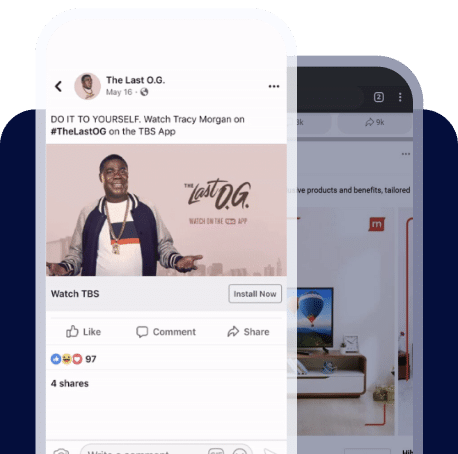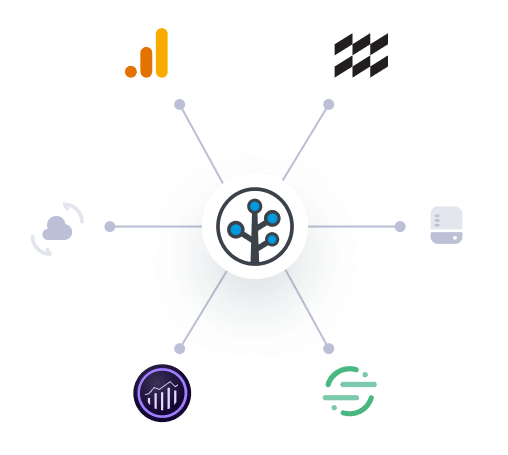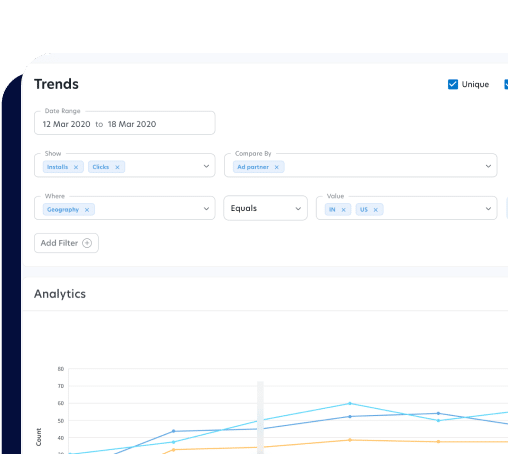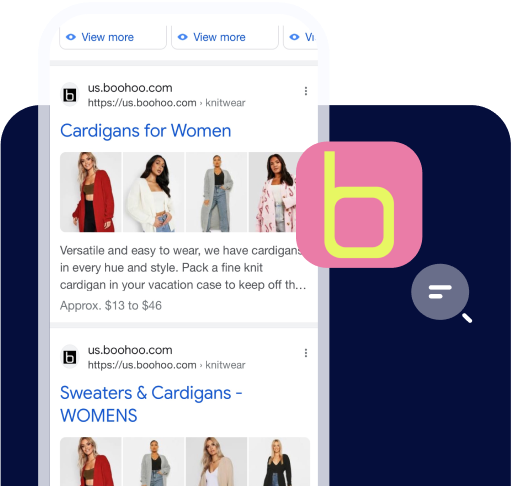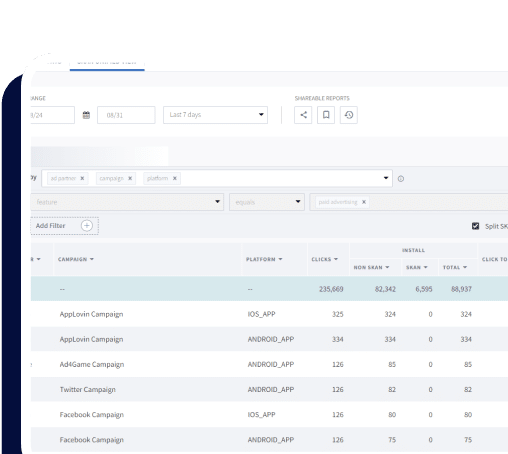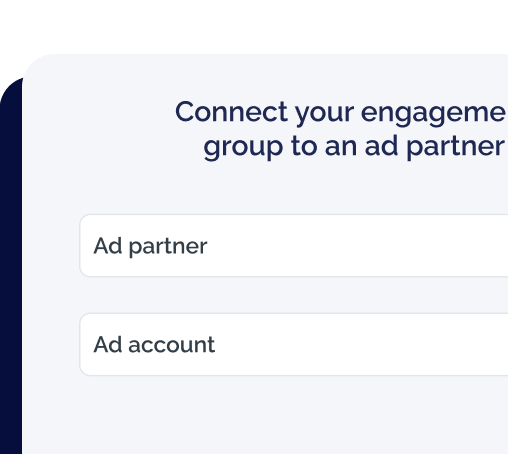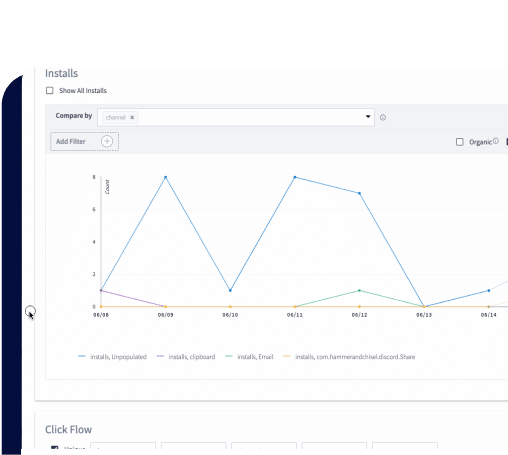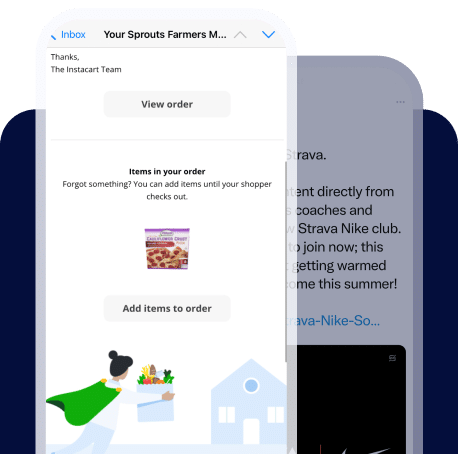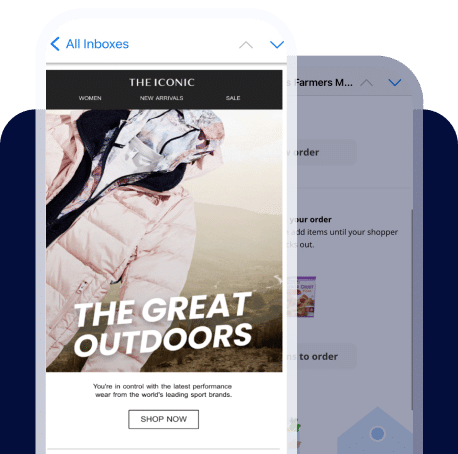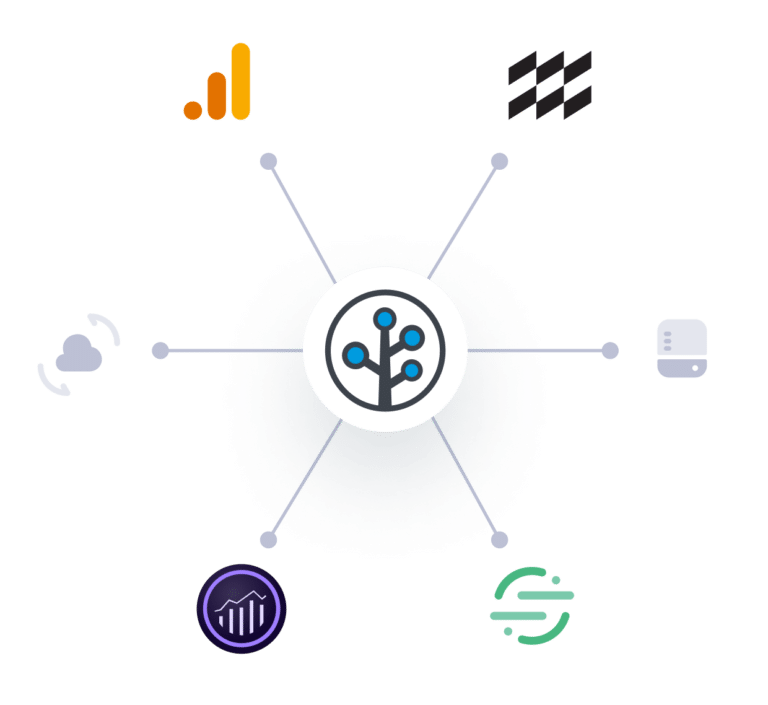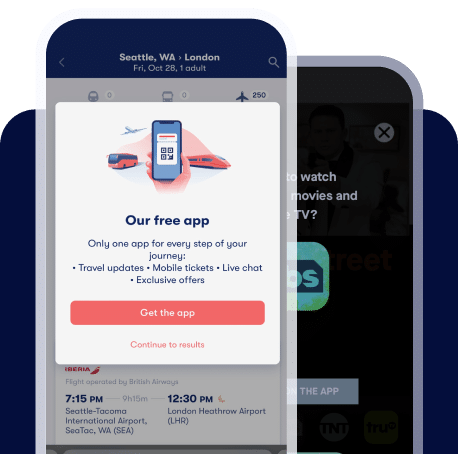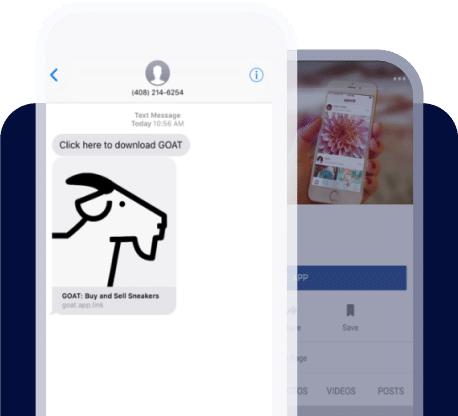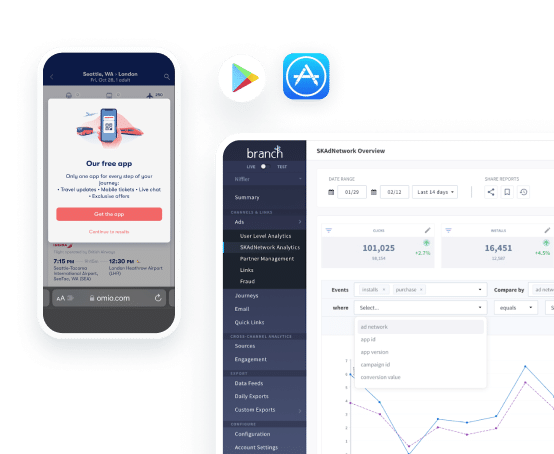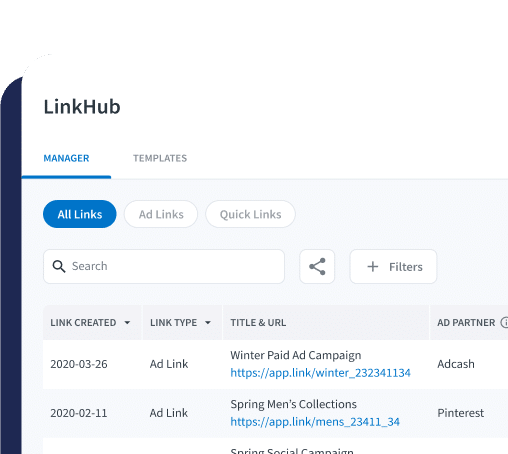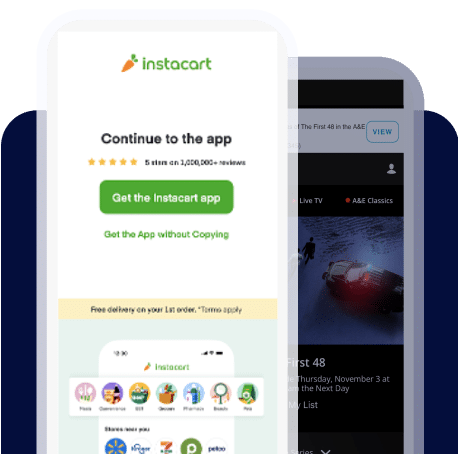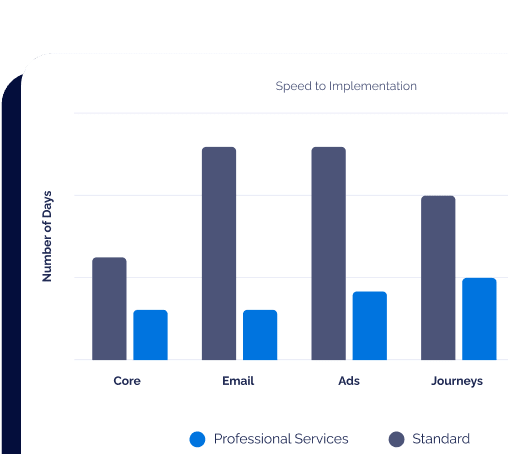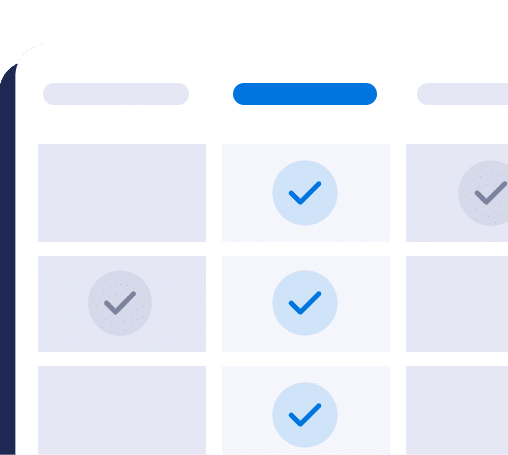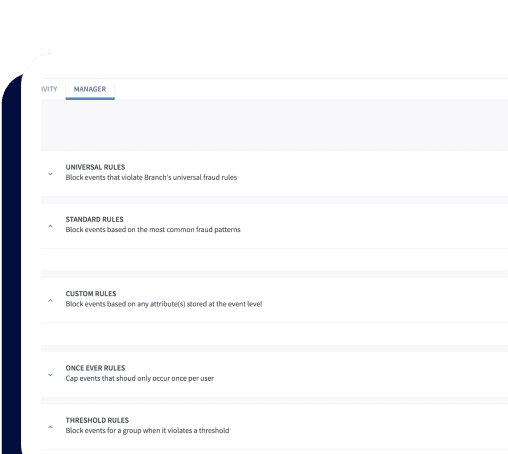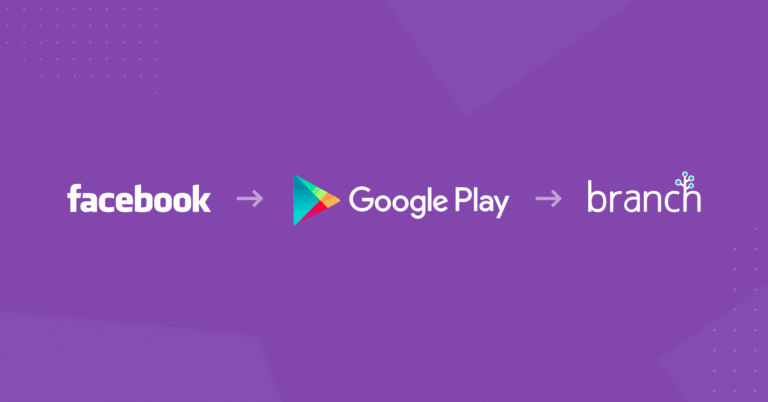Update: Facebook has now published documentation for their new Play Install Referrer functionality.
For most app marketers, Facebook ads have always been a key part of any user acquisition strategy. Many things have changed in the world of mobile over the last few years — especially after iOS 14 brought us into the new age of AppTrackingTransparency — but the importance (and relatively predictable effectiveness) of Facebook ads has not been one of them.
However, a significant update is coming to the data available from Facebook’s app campaigns later this fall. This has brought some confusion and concern, as you’d expect for anything that impacts a component of the mobile landscape that so many marketing professionals consider critical infrastructure. Fortunately, Branch is here to help guide you through everything you need to know.
First, and most importantly: if you (like the majority of Branch customers) get your campaign reporting from our dashboard or aggregate export APIs, nothing is changing. Branch will continue to receive attribution data directly from Facebook on your behalf, and it will look exactly the same as it always has (at least, setting aside the major changes already caused on iOS by the shift to SKAdNetwork).
The upcoming change will affect you if you previously signed the optional Advanced Mobile Measurement (AMM) agreement with Facebook, and rely on exporting device-level Facebook ads data from Branch for in-house measurement purposes. In that case, here is what you need to know:
- As previously announced in July, Facebook will deprecate the AMM program on October 29, 2021. This means Branch will no longer be able to provide log-level exports of conversion data from the Facebook MMP API.
- Facebook is launching a new way for advertisers to get device-level conversion data on Android. The new solution is based on the Google Play Install Referrer, and has the potential to unlock many of the same use cases for advertisers. It will be fully supported by Branch.

Let’s discuss each of these changes separately in more detail.
Facebook AMM Program Deprecation
The Facebook AMM (Advanced Mobile Measurement) program allows advertisers to export log-level data for Facebook campaigns from their MMP. It requires the advertiser to accept a data use agreement with Facebook, committing to only use this data for allowed measurement purposes (i.e., not for building user profiles or retargeting audiences).
Facebook started down the road toward deprecation a year and a half ago by removing view-through data from the AMM program, leaving data only for click-through conversions. Now, beginning October 29, click-through data is going away too.
In reality, this will not have an impact on the majority of advertisers, as the aggregated reporting available from an MMP (via either dashboard or API) satisfies all of the most common measurement use cases. However, for brands that want to create in-house predictive LTV models or run more complex internal attribution analyses, ingesting the event data available through AMM is critical.
This means its deprecation without any alternative would be quite disruptive. Fortunately, Facebook has a replacement offering — more details in the next section!
Why would Facebook get rid of AMM now? We can assume that user privacy is a key reason. This data is already extremely limited on iOS, due to iOS 14 and Apple’s new AppTrackingTransparency policy, and is inevitably going to become less complete on Android as Android 12 begins to zero out GAIDs for users who opt out of ads personalization.
A few other details worth mentioning about the AMM deprecation:
- The difference between AMM and MMP. MMPs (Mobile Measurement Partners) are companies integrated with Facebook in order to provide mobile ad attribution. AMM (Advanced Mobile Measurement) is a program that gives advertisers access to device-level data exported via their MMP. The Facebook MMP program is not going away — Branch will continue to receive and process data from Facebook, and can use it to generate aggregate reporting on behalf of our customers. The only change is we can no longer export it to you in log-level form.
- Branch’s unique SAN Deferred Deep Linking solution will be deprecated for Facebook. This feature requires advertisers to accept AMM terms, and won’t function after October 29. 2021.
- Log-level data sharing with FMPs (Facebook Marketing Partners). After the AMM program is deprecated, this will also no longer be possible. It is important to note that this is an update from the guidance Facebook released in September 2021.
Facebook’s Solution for Post-AMM Data
Fortunately, Facebook has built a new way to share granular attribution data with advertisers, unlocking many of the same use cases AMM used to power.
This new solution passes an encrypted payload via the Google Play Install Referrer, which is a data parameter that can be sent to the Play Store when a user is directed there to download an app. The Play Store stores this value and the app developer can then programmatically retrieve it inside the app post-install.
Facebook will secure the data inside the parameter using symmetric-key encryption, and once decrypted, the data available for each attributed install will look like this:
{
"ad_id":"<integer>",
"adgroup_id":"<integer>",
"adgroup_name":"<string>",
"campaign_id":"<integer>",
"campaign_name":"<string>",
"campaign_group_id":"<integer>",
"campaign_group_name":"<string>",
"account_id":"<integer>",
"ad_objective_name":"APP_INSTALL",
}
Translation: granular Facebook attribution data will be available on click-through conversions for Android installs that take place via the Google Play Store. This data will not be available for installs on iOS, for view-through conversions, or for Android installs that happen on other app stores.
What is Branch doing
The Play Install Referrer has been part of the Android ecosystem for years — in fact, Branch already uses it for various purposes, including both deferred deep linking and attribution.
To prepare for the launch of Facebook’s new solution, we’ve updated our Android SDK to ensure the Google Play Referrer is always collected, and we’re collaborating closely with the Facebook team to test the new data flow with mutual customers.
Once this is complete, here is what you can expect:
- The Branch SDK will automatically collect Play Install Referrer values on your behalf when your app is installed.
- Branch will accept the secret key you receive from Facebook, and we will take care of the decryption process for you.
- We’ll make the decrypted campaign metadata available to you for export via our existing export APIs and webhook systems, deduplicated alongside all of the data for your other ad network partners and non-paid acquisition channels.
- Our attribution engine will seamlessly incorporate this data into your attribution decisions. If there is ever a conflict between the Install Referrer and the data Branch receives from Facebook’s MMP endpoint, we’ll defer to the Install Referrer due to it being guaranteed last-touch by definition — we don’t expect this to happen often, but we’ll monitor closely as the new solution rolls out (note: this will also ensure your attribution data remains reliable when Android 12 begins to zero out GAIDs for users who opt out of ads personalization).
- Finally, we’ll make this data available in-app for deferred deep linking.
In other words, Branch will continue doing exactly what you have always trusted us to do: take care of the technical complexity inherent in the mobile ecosystem, so that you can focus on your business. Your users will receive amazing experiences, and you’ll have a single source of truth for your measurement data.
What happens next?
Facebook is moving very quickly to make the new Play Install Referrer solution available, and the Branch engineering teams are working with Facebook to make sure our platform is ready. Facebook expects the full GA date for all advertisers to be later this year, following successful testing.
In the meantime, you can ensure you’re ready as soon as the program is launched by updating to Branch Android SDK v5.0.13 or higher. Please reach out to your Branch CSM if you have further questions or want to share feedback or thoughts about this upcoming functionality!

